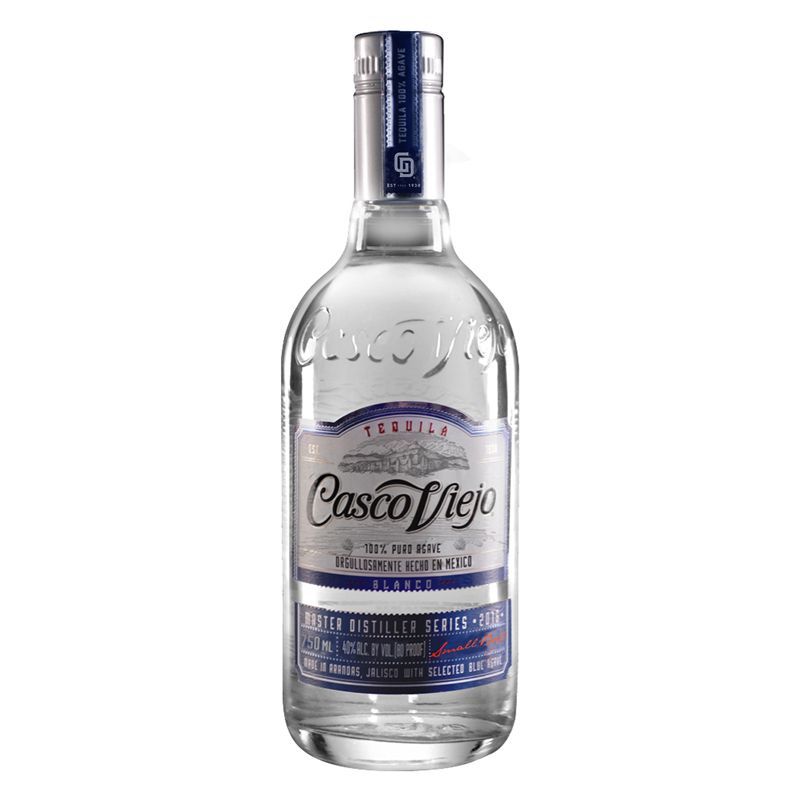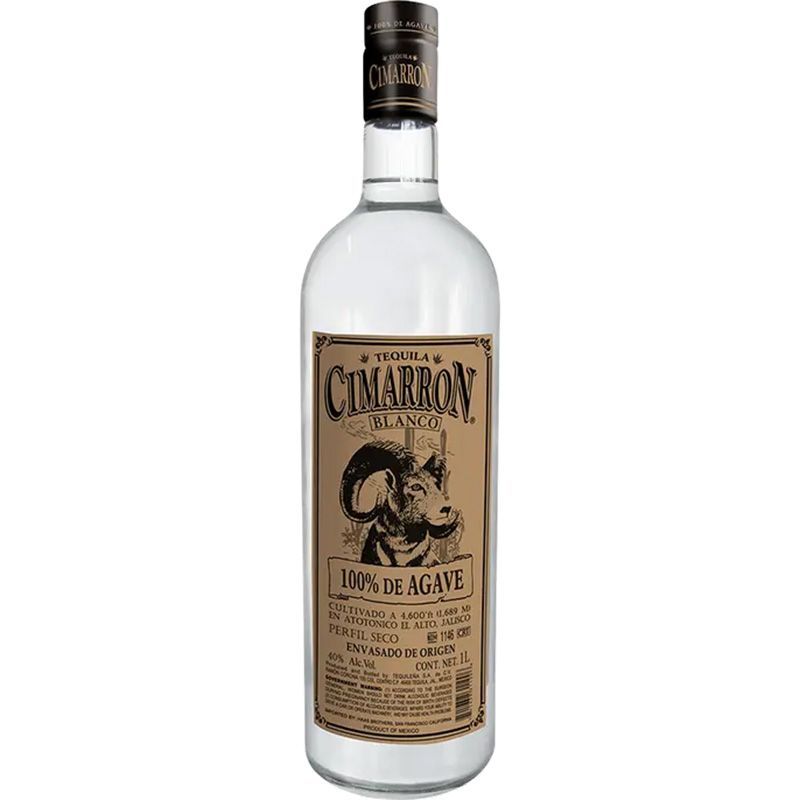The green mango martini at Superbueno, on the corner of First and First in New York City, is easily my new favourite cocktail. There’s no vodka involved. Instead, the main ingredient is Patrón infused with green mangoes and accompanied by mango brandy, Sauternes, honey, and a drop of costeño chile oil. Its otherworldly deliciousness and elegance represent in one cocktail how far tequila has come in the U.S. Aficionados know that the Mexican spirit is every bit as complex as whiskey but just as much fun as rum.
If you were to tell me 23 years ago, when I first started writing about drinks, that tequila and mezcal combined might one day beat out vodka to become America’s best-selling spirit and that people would be drinking $18 tequila martinis, I’d have done a spit take with my old-fashioned. Yet that’s exactly what’s happening. While vodka sales were flat last year, tequila and mezcal sales rose 17 percent, marking 20 years of sustained growth. Some cynics will roll their eyes and dismiss this as celebrity capitalism gone wild. (Everyone from the Rock to George Clooney has a tequila brand these days.) But I like to think of it as a triumph of taste in America.
Sure, the margarita has always been the drink of those who see Cinco de Mayo as a year-round way of life. But the popularity of the quintessential party drink alone wasn’t enough to propel tequila to number one. According to the Distilled Spirits Council of the United States, the robust demand for more luxurious, premium tequilas—those that go for the price of single-malt Scotches— is a significant part of tequila’s boom as well.
With tequila, terroir is evident in each sip, perhaps more than in any other spirit (and most certainly vodka). It’s made from agave plants, which are particularly abundant in west-central Mexico. A highland tequila (Los Altos) will generally be fruitier and more floral than one from the lowlands (El Valle), which tends to be brighter and peppery. The very best tequila tastes ancient because it is: Fermenting agave goes back thousands of years. (The earliest references date to 1000 B.C.) Tequila tastes like it was made by the labor of many human hands and not the push of a button. And in a world where so much can be deepfaked, where White Claw and macro beers seem to dominate the drinking industry like unavoidable AI-generated Muzak at a bad airport bar, tequila just might be the most visceral, analog, transportive thing you can sip these days to cut through the noise and appreciate that what you’re feeling is indeed the real thing.
Let’s get the basics out of the way. There are blancos and platos. These fall into the unaged category. While reposados are aged at least 2 months in oak. Anejos takes it a step further with it spending at least one year in oak. (Extra Anejos are in the barrel for at least three years.) Age does not mean it’s better. In fact, hardcore tequila fans tend to prefer the freshness and vibrancy of blancos as compared to the more subdued anejos and repos. But put together, all three main types of tequila offer a wide spectrum of regions and flavors to explore in cocktails and sipping, and I guess, if you must, shots.
Here’s a few favourites of ours and other tequila fans Nacho Ximenez of NYC’s Superbueno, Robert Struthers the Beverage Director of Gair in Brooklyn, and bartender Lynette Marrero who is Co-Founder of Speed Rack, MasterClass host, and partner and Chief Mixologist of Delola.

Casco Viejo Tequila Blanco
"The best value tequila," says Nacho Ximenez of NYC's Superbueno.

Pueblo Viejo Anejo
Robert Struthers, Beverage Director of Gair, prefers this "When you need a lot of decent tequila to go around."

El Tesoro Reposado
"From a bartender's perspective, I'm always happy with El Tosoro, the reposado in particular," says Marrero. "It's always been very predictable and delicious."

Cimarron Blanco Tequila
“Always decent for a mixable light tequila” says Marrero. And it usually comes in a 1 litre size offering a good value.

Teremana Blanco
Marrero like’s the tequila company owned by Dwayne the Rock Johnson for their sustainability practices as well as what’s in the bottle. “They’ve tried to responsibly grow and have held back as they build their distribution,” says Marrero.

Siete Leguas Tequila Reposado
Nearly all of the bartenders we spoke to will say that this is a must. Says Struthers: “They stay true to making quality tequila AND steadily raising their prices as it becomes more difficult to maintain this dedication.” Marrero says, “There’s something that just feels like home with the blanco.”

Tepozan Tequila Blanco
A small-batch tequila you've probably never heard of and definitely should try and is surprisingly affordable too,” says Struthers.

When you want smoke in your margarita, it’s normal to reach for mezcal. Next time, try Maestro Dobel Humito instead which uses agave that’s been smoked with mesquite to impart a subtle smoke flavour.

El Tesoro Extra Anejo
“It’s extremely rich with notes of butterscotch and herbs,” says Ximenez.

Don Julio 1942
Easily recognisable in the tall, slender bottle, this very special Don Julio is aged in oak for two and a half years so it drinks a bit more like a smooth whiskey but is still very much a tequila.

It’s tequila, unadulterated, as if sipped straight from the still. Terroir times one hundred. Hard to find, but worth the quest. You’ll sometimes find bottles at duty free at Mexican airports.
Nothing wrong with your classic margarita, but tequila can make for some of the most dynamic and delicious cocktails you’ll ever have. If you’re up for experimenting, swap in tequila where you would normally use a gin or vodka. (A Bloody Maria bests the vodka-based bloody Mary in my book.) Here’s five essential modern classics.

Campari, grapefruit, and lime make this a cocktail light and bright enough to crush yet bitter enough to sip, too.
1 1/2 ounces tequila blanco
3/4 ounce lime juice
1/2 ounce grapefruit juice
3/4 ounce simple syrup
1/4 ounce Campari
Shake with ice. Strain into a coupe. Garnish with a lime wheel.

Traditionally made with Squirt soda from Mexico, this is the fun-loving combination that you’ve been missing all of your life.
2 ounces tequila
1/2 ounce lime juice, freshly squeezed
Grapefruit soda, chilled, to top
Add tequila and lime juice to a glass, and fill with ice. Top with grapefruit soda, and stir briefly. Garnish with a lime wheel.
Who needs triple-sec in a margarita? Swap that out with a touch of agave syrup, and you’ve got something light, bright, sour (and less calorie-dense) than margaritas that you always thought were too damn sweet.
2 ounces 100% agave tequila
1 ounce fresh lime juice
1 ounce agave nectar syrup (1 part agave nectar to 1 part water)
Shake ingredients with ice and strain into a cocktail glass.

If you swap out triple sec for orgeat (almond syrup) and add a dusting of nutmeg, you have a cool-weather margarita.
2 ounces blanco tequila
3/4 ounces lime juice
3/4 ounces orgeat
2 dashes rose water.
Shake with ice and strain into a rocks glass with ice. Garnish with freshly ground nutmeg.

If you're a scotch person who thinks they don’t like tequila. This will change your mind. While I’ve seen many folks skip the mezcal and go for a full two ounces of aged tequila, that’s essential if you want that smokey touch.
1½ ounces reposado tequila
½ ounce mezcal
1 teaspoon agave nectar
1 dash Angostura bitters
Stir with ice and strain into a rocks glass with ice. Flame an orange peel twist over glass. Discard.
We know you’re still going to make margaritas. Here’s five simple tips to make them even better:
1) Don’t use table salt. The grains are too small. Go kosher or sea salt. Smoked salt if you want to get fancy. Tajin, the Mexican fruit seasoning can be revelatory.
2) Fresh lime juice. If you’ve been using store-bought lime-juice, we feel bad for you.
3) Try it up. On the rocks is great on a hot day. But the tequila really shines, and is downright elegant when served in a chilled coupe every once in a while.
4) Want spice? A few dashes of Cholula or Tapatio. Boom.